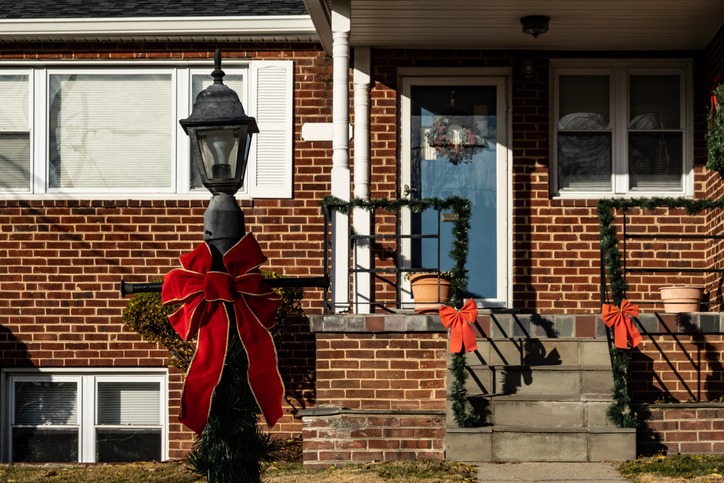Outdoor lights are a beautiful and modern addition to any garden, but with weather conditions constantly fluctuating, it’s important that you keep them safe. This is even truer in winter when low temperatures and heavy snow pose a huge threat to your external electrical equipment. Anyone with an outdoor lighting system will know this, but not as many people are aware of the best ways to protect their fixtures.
If you want to keep using your home’s exterior lights throughout every season, they need to remain in full working order. Despite their durability, outdoor lighting systems need additional protection, so keep reading for top tips on how to look after them this winter.
Install Protective Shields
You’re less likely to use your outdoor lighting during winter because it will be too cold to sit out on the deck for long periods of time, so protective shields are a great option for keeping the lights safe. They look like small boxes that fit over the tops of the individual lights and cover them. Though they do dim the lights by acting as barriers, using shields means that you won’t need to modify the lights in any way to protect them. Rain and snow will make contact with the shields and not the lighting, and they will also be insulated from the dropping temperatures.
Only Use Outdoor Bulbs in the Lights
Outdoor lighting is different from indoor lighting, so you should always be using outdoor bulbs. This is particularly important in winter because outdoor light bulbs are designed to be weatherproof and more durable, so the wind, rain, snow and general coldness won’t damage them the way that they would damage indoor bulbs. The more resistant the bulbs, the more defensive your outdoor lighting will be as weather conditions become more extreme and unpredictable. If you can’t find any outdoor bulbs, order some and don’t feel tempted to use indoor bulbs until the outdoor ones arrive.
Clean the Lighting Regularly
Despite its innate durability, you still need to clean your outdoor lighting in order to maintain it. If you don’t, the moisture and dirt that will settle on the lenses and fixtures throughout the winter months will start to erode the lights. When spring arrives, you want your outdoor lighting to look as good as possible and work just as well, so it’s imperative that you take the time to maintain them throughout winter. All you need to clean outdoor lights is a gentle cloth and some CLR cleaner, which can be found in plenty of stores.
Ensure That No Wires Are Exposed
Naturally, the wiring for your outdoor lighting will be earthed, but freezing winter temperatures often force buried wires upwards. When the wires are exposed to the elements, they become incredibly vulnerable. The wind may blow debris into the wires, the rain will soak them and snow will bury and freeze them, all of which causes damage. If the wires have become damaged, you should avoid handling them yourself and instead employ an experienced electrician to re-earth them.
Consider Readjusting the Positions of Your Lighting Fixtures
From the deck railings to your deck furniture, your decking area is doubtlessly full, but you should consider readjusting your outdoor lighting if they aren’t positioned in the most secure areas. For example, any fixtures exposed in the middle of the deck should be moved closer to the house to shelter them. You could also move them nearer to your deck railings to stabilize them. An electrician will be able to tell you where it is best to place your outdoor lights, but if you’re rearranging them yourself, think about where they will be most protected and secure throughout winter.
Unplug the Lights During Turbulent Weather
Outdoor lights are designed to withstand various different weather conditions, but when the wind and rain become tumultuous, as they often do during winter, it might be a good idea to switch your lights off completely. Unplugging them stops water and moisture from getting inside the lights while they’re on, protecting your electrical equipment from full exposure to water damage. You will also save energy by unplugging the lights, especially if you aren’t using them due to bad winter weather.

